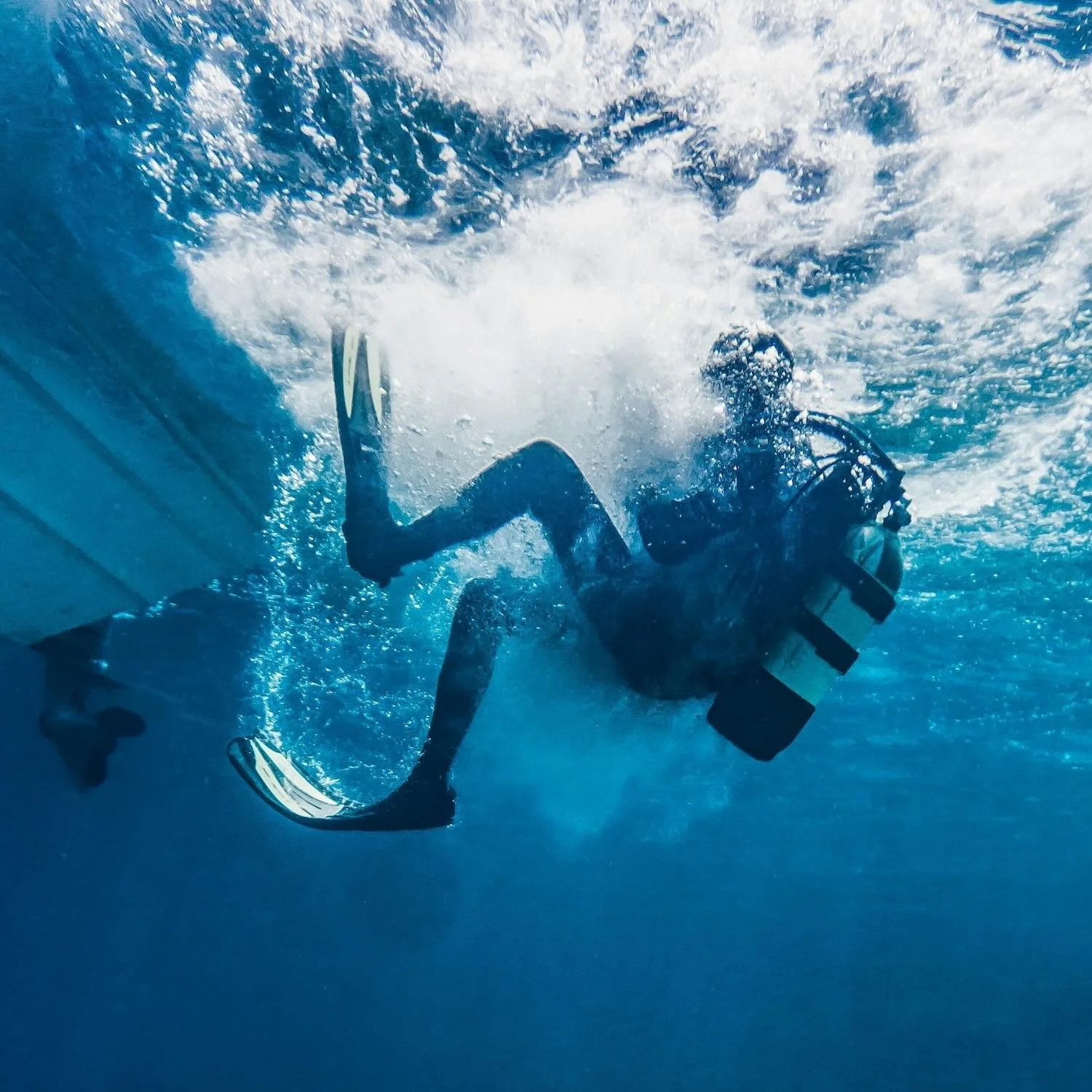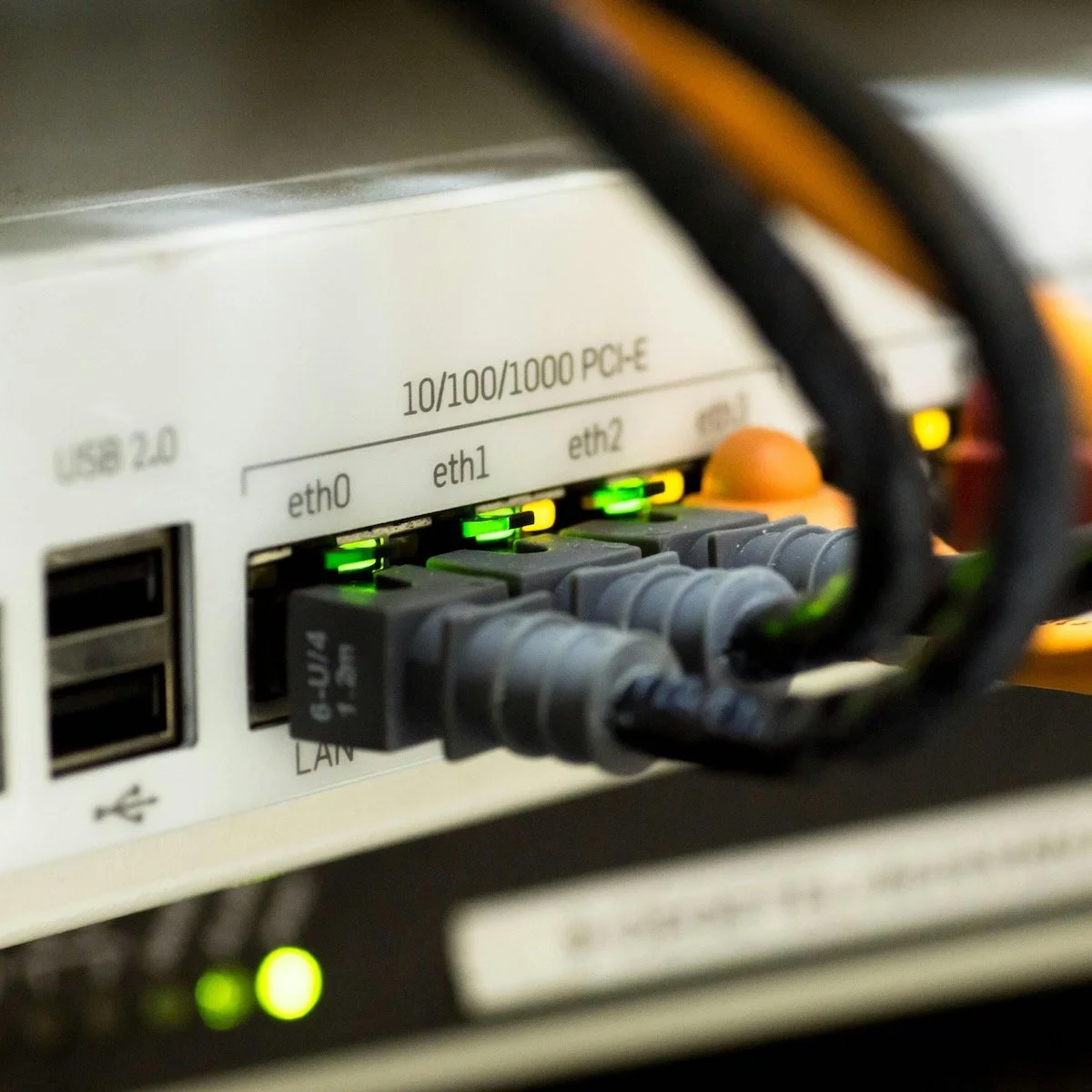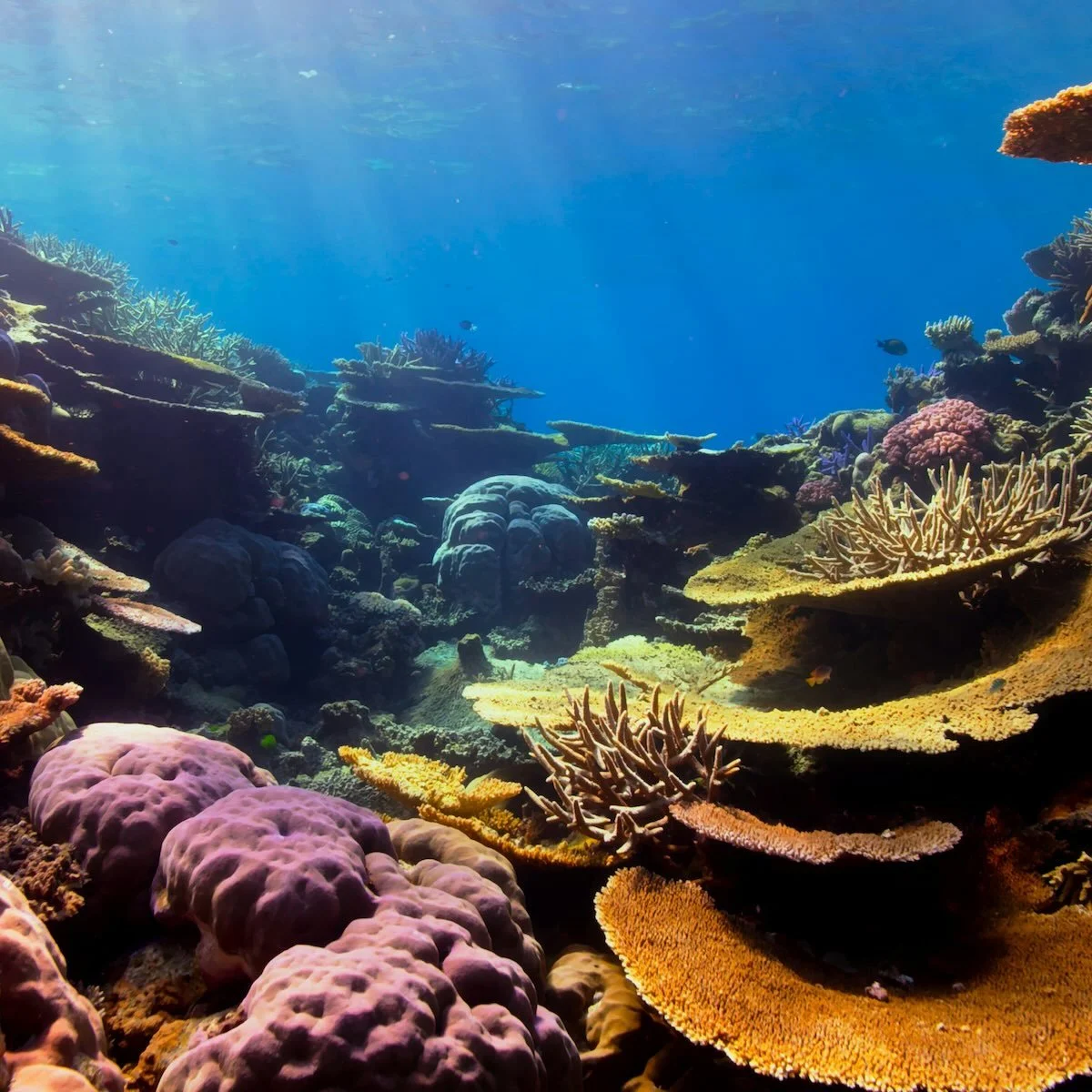
Our conservation philosophy
Three principles that guide and inspire our approach to reef conservation
Principle #1
Reef conservation is about people.
Reef conservation is “because of,” “by,” and “for” people.
Modern reef formations, having thrived for thousands of years, are now in crisis largely because of human activity. From fishing practices and coastal development to ocean conditions like temperature, acidity, and pollution, many of the threats reefs face are caused, directly or indirectly, by us. Understanding this isn’t about placing blame; it’s about recognizing that we have a profound impact on the natural world. And if we have the power to degrade reefs, we also have the power — and responsibility — to protect them.
Reef conservation is not just the work of marine scientists or conservation groups. It’s a grand collaboration that includes divers, local communities, business leaders, tourists, governments, and everyday citizens. It’s built on shared values, curiosity, compassion, and a desire to act. The success of reef conservation depends on people working together across disciplines and borders, contributing their time, knowledge, and care to a cause greater than themselves.
Healthy reefs give back in powerful ways. They protect coastal communities from storms, provide food and jobs for millions, fuel vibrant tourism economies, and inspire awe in people all over the world. They are part of cultural heritage and spiritual identity for many coastal communities. By conserving reefs, we’re not only preserving ecosystems, we’re investing in the well-being of people today and for generations to come.
Principle #2
Reef conservation must be data-driven.
Coral reefs are complex, dynamic ecosystems, and the challenges they face are interconnected. Disease, thermal bleaching, water quality, fishing practices, and other threats compound one another in ways that can be hard to untangle without rigorous observation and analysis. That’s why data is at the heart of reef conservation.
Understanding how reefs are changing requires consistent monitoring of parameters like coral cover, species diversity, water temperature, and disease prevalence. Data can identify which reefs are declining fastest, which are showing signs of resilience, and what conditions may be tipping the scales. Without data, we’re missing opportunities to act with precision and impact.
Data also accelerates innovation. In reef conservation, the critical years ahead are few. Rapid innovation and iteration are paramount, and data-driven action is the only way. Data enables wise resource investment by informing smarter intervention techniques, evaluating strategy effectiveness, and creating opportunities to act with precision and impact.
Principle #3
Reef conservation must emphasize reef resilience.
There are two basic approaches to conservation. One is to mitigate threats to an ecosystem. The other is to enhance an ecosystem’s resilience to the threats it faces. Both approaches are important, and both can be successful.
Our core program, the INSIGHT Diver Network, supports both approaches to reef conservation with its data-driven focus. However, our mission statement emphasizes reef resilience. Why? The biggest threats that reefs are facing are incredibly difficult to mitigate.
While there are many causes of reef degradation, it is clear that coral disease and thermal bleaching are the immediate existential threats to reefs. Resilience against these and other threats is the ability of a reef to resist being affected by a threat and to recover quickly when it is.
Some reefs are already showing signs of resilience — whether due to the species they host, genetics, the structure of the ecosystem, or even local conditions. By studying and supporting these natural strengths, we can help reefs thrive in and adapt to their changing world.



